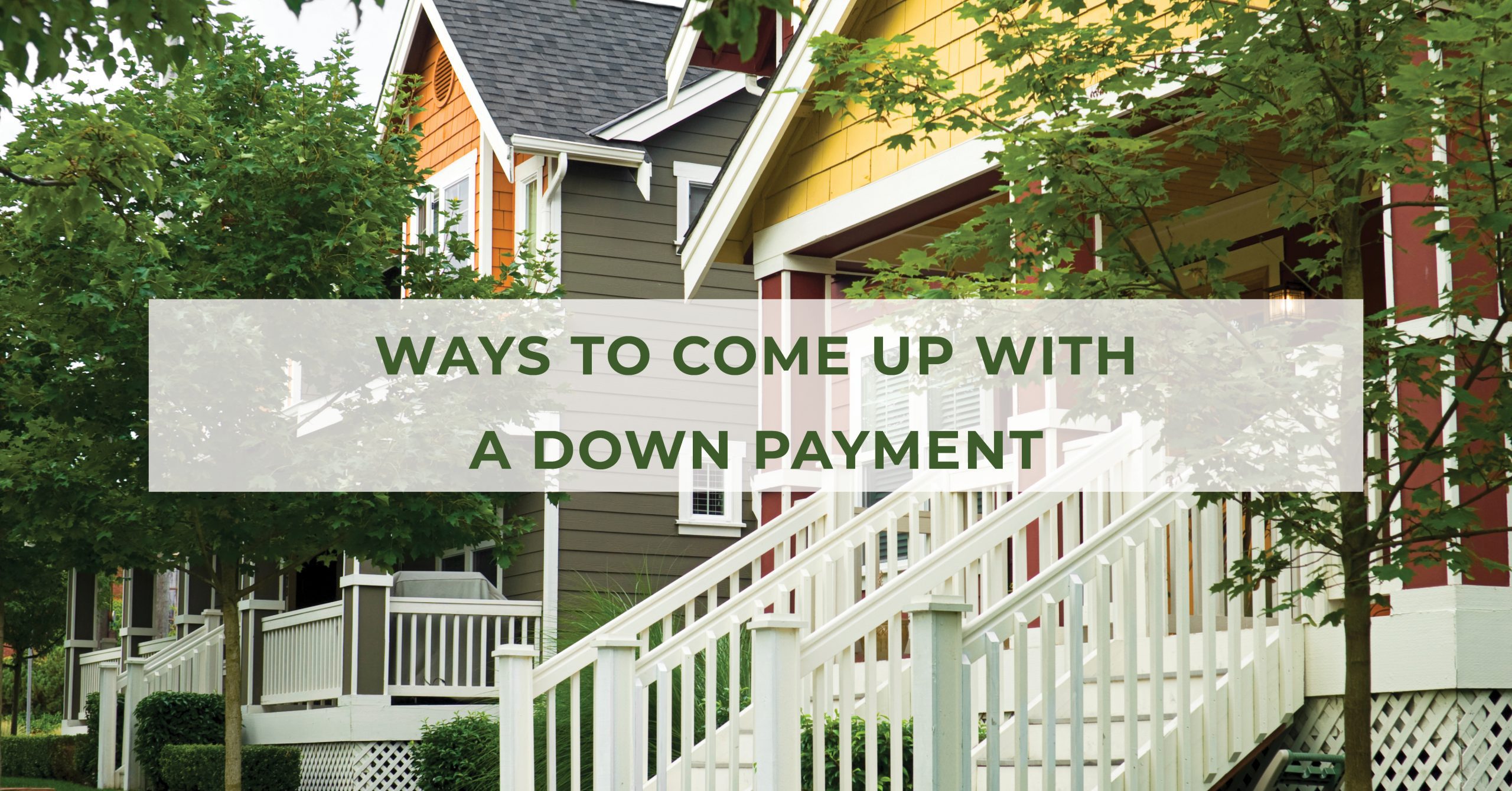
By Alena Kairys
May 24, 2023For many aspiring homeowners, coming up with a down payment is a significant obstacle standing in the way of homeownership. While having a 20% down payment isn’t required to buy a home, it can be challenging to gather enough funds to start the home buying process. Read on to learn about different ways to come up with a down payment.
Increase Savings
Saving money is perhaps the obvious first choice when it comes to collecting a down payment. The process of putting away extra money usually happens gradually, so it’s best to start a dedicated savings account as soon as possible. Increase your savings potential by creating and maintaining a household budget. You might also consider starting a side hustle or asking your employer for a raise to increase your cash flow. Growing your savings will be beneficial when you’re ready to begin your home buying journey, even if you find you won’t need much for your down payment.
Down Payment Assistance
Down payment assistance (DPA) programs are an underrated way to partially or fully subsidize your down payment. There are many DPA programs offered to homebuyers at the federal and state level, from both public and private institutions. DPA programs are often tailored to first-time or low-income buyers, but repeat homebuyers may be eligible for certain programs. The DPA funds can come in the form of a grant or a low interest second mortgage that may be repayable or forgiven after a set amount of time. If you’re part of a particular profession, such as teaching or law enforcement, there are DPA programs designed to help you become a homeowner. Taking advantage of DPA allows you to secure your dream home and save for other expenses. Make sure to ask your loan originator if you qualify for any down payment assistance programs.
Gift Funds
Your down payment doesn’t have to come entirely from you; all or part of it can come from family and friends in the form of gift funds. In order to use gift funds in your down payment, have your benefactor send your lender a gift letter detailing the amount given, their relationship to you, withdrawal dates, and a statement that repayment is not expected. Your lender may also need to see accompanying withdrawal and deposit slips to source the money. It’s important to know that if your contributor expects you to repay the gifted money, it will be considered a loan and will be factored into your debt-to-income (DTI) ratio.
Leverage Your 401(k)
401(k)s are meant to be accessed upon reaching age 59 ½ , but tapping into it earlier can boost your down payment amount if needed. You can either use a 401(k) loan (if offered by your employer), or withdraw funds. Both methods allow you to access cash on hand without going through a lender or credit check. A 401(k) loan lets you borrow against your retirement savings and must be restored within five years with interest. Your employer may pause 401(k) contributions until the loan is paid back. Withdrawing money from your account will lead to a 10% penalty fee, and any amount you remove will be subject to an income tax. You will also forfeit any tax-free retirement earnings that you have accrued. For these reasons, this option is best used only as a last resort. It’s essential to consult with a financial advisor so you fully understand what’s involved.
Getting a down payment ready doesn’t have to be the thing that stops you from achieving homeownership! If owning a home is something you want to accomplish, it’s ever too early to start saving and preparing for one of the most important purchases of your life.
If you have any questions about buying a home, contact one of our licensed Mortgage Loan Originators. If you are ready to begin the home buying process, click here to get started!
NFM Lending is not a financial or tax advisor. You should consult a financial advisor to assist with your financial goals.
These blogs are for informational purposes only. Make sure you understand the features associated with the loan program you choose, and that it meets your unique financial needs. Subject to Debt-to-Income and Underwriting requirements. This is not a credit decision or a commitment to lend. Eligibility is subject to completion of an application and verification of home ownership, occupancy, title, income, employment, credit, home value, collateral, and underwriting requirements. Not all programs are available in all areas. Offers may vary and are subject to change at any time without notice. Should you have any questions about the information provided, please contact us.